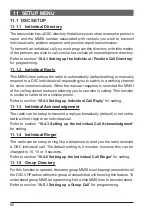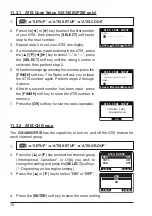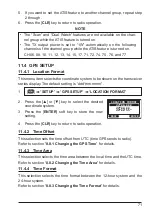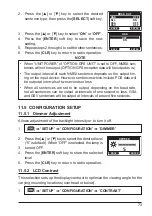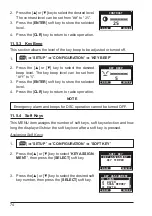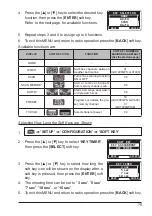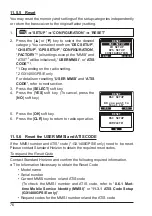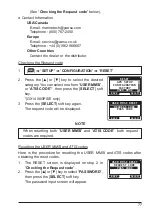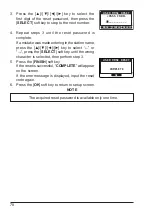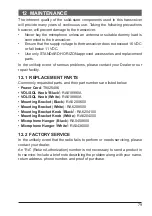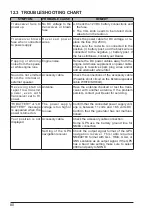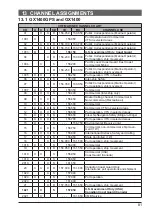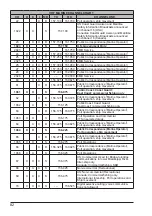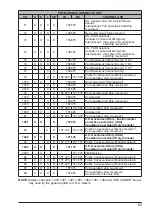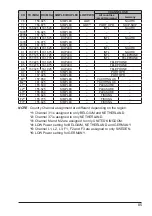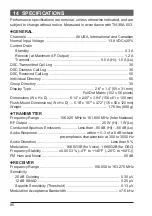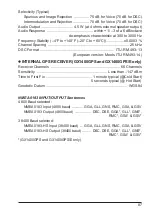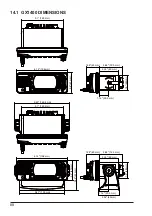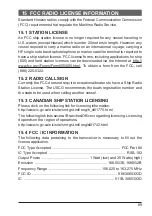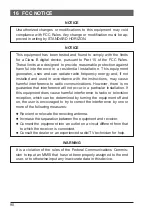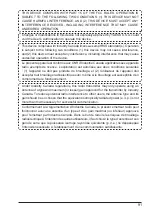
80
12.3 TROUBLESHOOTING CHART
SYMPTOM
PROBABLE CAUSE
REMEDY
Transceiver fails to
power up.
No DC voltage to the
transceiver, or blown
fuse.
a. Check the 12 VDC battery connections and
the fuse.
b. The VOL knob needs to be rotated clock-
wise to turn the radio on.
Transceiver blows
fuse when connected
to power supply.
R e v e r s e d p o w e r
wires.
Check the power cable for DC voltage, or re-
place the fuse (6 A 250 V).
Make sure the red wire is connected to the
positive (+) battery post, and the black wire is
connected to the negative (-) battery post. If
the fuse still blows, contact your Dealer.
Popping or whining
noise from the speak-
er while engine runs.
Engine noise.
Reroute the DC power cables away from the
engine. Add noise suppressor on power cable.
Change to resistive spark plug wires and/or
add an alternator whine filter.
Sound is not emitted
from the internal or
external speaker.
Accessory cable.
Check the connections of the accessory cable
(Possible short circuit on the External speaker
cable WHITE/SHIELD).
R e c e i v i n g s t a t i o n
report low transmit
p o w e r, e v e n w i t h
transceiver set to HI
power.
Antenna.
Have the antenna checked or test the trans-
ceiver with another antenna. If the problem
persists, contact your Dealer for servicing.
“HI BATTERY” or “LO
BATTERY” message
is appeared when the
power is turned on.
T h e p o w e r s u p p l y
voltage is too high or
too low.
Confirm that the connected power supply volt
-
age is between 11 volts and 16.6 volts DC.
Confirm that the generator has not malfunc
-
tioned.
Your position is not
displayed.
Accessory cable.
Check the accessory cable connection.
Some GPS use the battery ground line for
NMEA connection.
Setting of the GPS
navigation receiver.
Check the output signal format of the GPS
navigation receiver. This radio requires
NMEA0183 format with GLL, RMC, GGA, or
GNS sentence as an output signal. If the GPS
has a baud rate setting make sure to select
4800 and parity to NONE.
Summary of Contents for ECLIPSE
Page 96: ......

